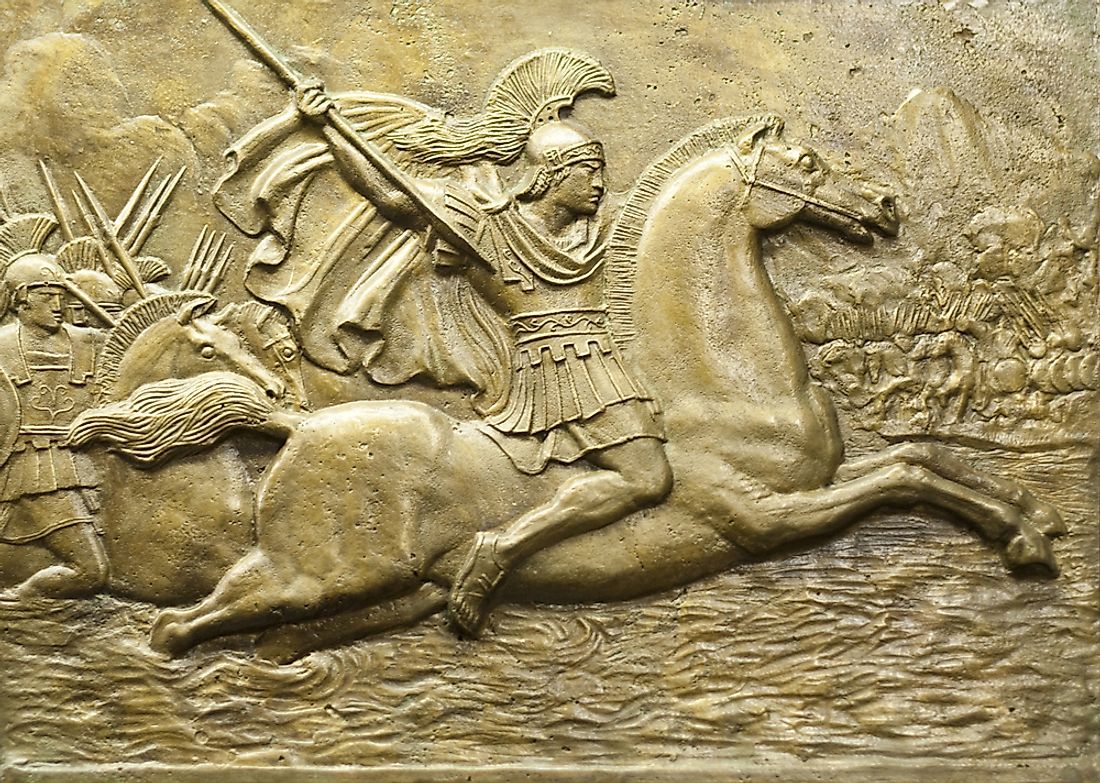How Did Alexander the Great Die?

Who Was Alexander the Great?
Alexander the Great, also known as Alexander III of Macedon, was born in 356 BC and became the King of Macedon in 336 BC. During his first 10 years in power, he established one of the largest kingdoms of the ancient world. Alexander the Great is remembered as one of the most successful military leaders ever, spending the majority of his reign directing military campaigns across northeast Africa and Asia. Historians believe he died sometime between June 10th and 11th of 323 BC at 32 years of age. The events surrounding his death are shrouded in mystery.
Events Leading Up to His Death
During the months prior to his death, Alexander the Great and his soldiers were traveling to Babylon for a break between military campaigns. According to historical accounts, they passed through the nation of Chaldea along the way. Here the citizens warned him that their deity had prophesied his death in Babylon. In order to reduce some of the bad luck associated with their journey, the group took an out-of-the-way route to avoid traveling toward the setting sun. According to local customs, the setting sun was considered a symbol of ruin. This alternate route turned out to be difficult as it was filled with swamps and wetlands.
Alexander the Great and his troops arrived in Babylon during the month of May. On May 29, a great banquet dinner was held in the palace of Nebuchadnezzar II, complete with plentiful food and alcohol. After a day of merrymaking, Alexander the Great reportedly complained of feeling sick and retired to his sleeping quarters for some rest. He remained in his bedroom, unable to leave, speak, or walk, for approximately 12 days before drawing his final breath.
Cause of Death Theories
The actual cause of death remains unknown, although theories abound. Some of the suggested causes of Alexander the Great’s death include: poison, liver disease, typhoid fever, and malaria.
Because Alexander the Great was celebrating, dining, and drinking wine, many historians and historical accounts suggest that either his food or drink was poisoned. This theory posits that Antipater was behind the assassination. He had previously been removed from his position as Macedonian viceroy and would have had reason to seek revenge. Additionally, his son was responsible for serving wine to Alexander the Great all night. Toxicologists have debunked this theory, claiming that poison would take effect at a much faster rate than the 12 days he spent in bed. One toxicologist, however, has suggested that white hellebore, the Veratrum album lily plant, could have been used.
Another proposed cause of death is infectious disease such as malaria, West Nile virus, or typhoid fever. Not only were these three illnesses relatively common during the time, but historical records mention that Alexander the Great suffered from chills, fever, exhaustion, and profuse sweating the week prior to his death. These symptoms and his reported abdominal pain are often associated with all of these potential causes of death. In addition, Alexander was traveling through swamps and wetlands before arriving in Babylon, which could have exposed him to malaria or West Nile-carrying mosquitoes.











